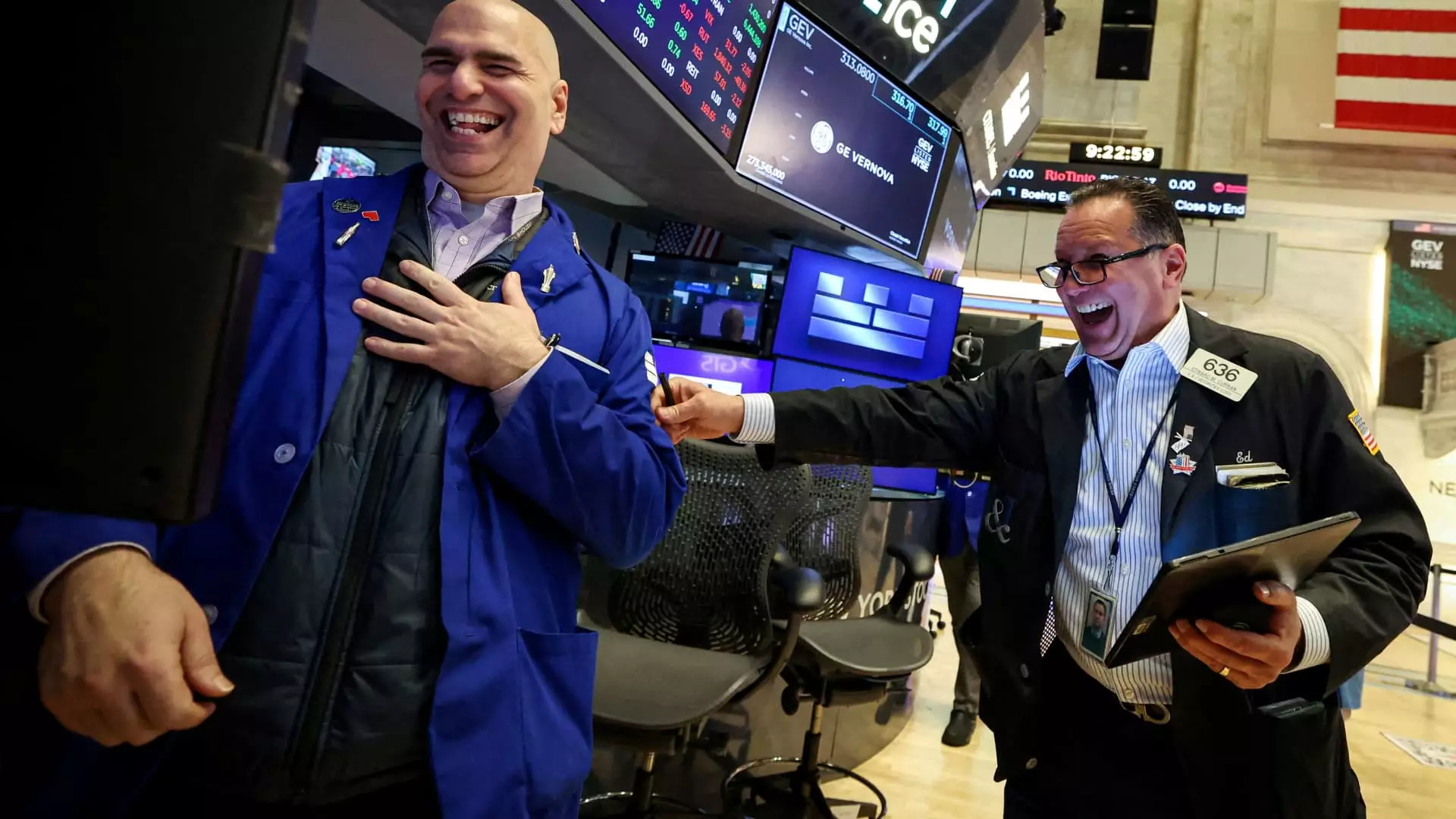The stock market just experienced an intriguing rollercoaster ride, driven primarily by the frenetic actions of short sellers scrambling to minimize their losses. In what seems to be a classic case of squeezing the shorts, hedge funds were caught off guard by the market’s rapid ascent. This adrenaline-fueled trading strategy is placing immense pressure on the financial landscape, leading one to wonder how much of this pandemonium is backed by solid fundamentals versus pure technical maneuvering. The reality is that short-selling—where investors bet against stocks—can create a fragile balance between risk and reward, especially when the market unexpectedly shifts in a different direction.
The current state of affairs sheds light on the inherent volatility within hedge fund strategies. Many shorts have piled on their bets against stocks linked to macroeconomic indicators and specific sectors, encouraged by some recent turbulence in the market. Yet, as soon as the tide began to turn, they were forced into a frenzied buying spree to cover those positions. This introduces an unnerving kind of instability, as short squeezes can artificially inflate stock prices without any real economic catalysts in play. The resulting price swings can obscure the long-term value of companies, leading savvy investors to question the integrity of the market’s current trajectory.
Illusions of Recovery amid Macro Misery
The recent rally in indices like the Dow Jones Industrial Average and the S&P 500 can hardly be considered a sign of robust economic health when examined closely. The surges triggered by comments from figures such as Treasury Secretary Scott Bessent about potential trade deals sound promising on the surface but mask deeper concerns about the fragility of the recovery. Suggesting that there is an “opportunity for a big deal” with China serves more to placate Wall Street than to reflect tangible progress. Hints of easing tensions are welcome, yet they often carry the weight of unfulfilled promises, raising apprehensions about the sustainability of such gains.
Furthermore, the stock market’s meteoric rise thanks to short covering veils the reality of what is underneath: a lack of substantial, long-term buying from longer-term investors. As Goldman Sachs insiders indicated, the swift rebounds witnessed may not withstand scrutiny if the fundamentals of the economy don’t support them. Instead of genuine optimism buoying the market upwards, we might be witnessing a bubble generated by the mere mechanics of short-covering without the support of actual growth or earnings.
The Hypocrisy of Political Interference
Compounding the volatility is the dissonance coming from political leadership, as exemplified by President Trump’s erratic stances regarding the Federal Reserve. After earlier suggestions that Chair Jerome Powell be dismissed, Trump abruptly reassured the public that “there is no intention” to fire him. This flip-flopping creates confusion among investors caught in the crossfire of political rhetoric that appears to influence market psychology more than economic data itself. Such behavior raises an important question: how much credibility do we place on the statements of public officials when it comes to our investments?
When short sellers are forced to react to the whims of political maneuvers that lack a clear direction, it breeds an unsettling environment where unpredictability reigns. For investors who prioritize stability and rational decision-making, betting on the whims of politics can feel akin to gambling—engaging them in a risky game devoid of the benchmarks that traditionally guide investment decisions.
Looking Beneath the Surface
The latest market dynamics expose not only the vulnerabilities inherent in short-selling practices but also the manipulative forces at play in the stock market’s ongoing saga. As rallying cries coincide with reactive decision-making from hedge funds, it becomes increasingly crucial for investors to differentiate superficial gains from underlying economic trends. The siren songs of rapid stock increases should not blind us to the realities of potential overvaluation, especially when supported by reactions to short-seller behavior rather than organic market growth.
One of the most pressing questions remains: Are we merely witnessing a temporary surge in stock prices, buoyed by short-covering rather than fundamental economic prosperity? Investors would do well to maintain a level-headed approach, keeping an eye on the broader picture while navigating the noise of market maneuvers. In this era of uncertainty, where political decisions mesh with market winds, it’s vital to remain vigilant and prepared for the potential upheavals that lay ahead.

